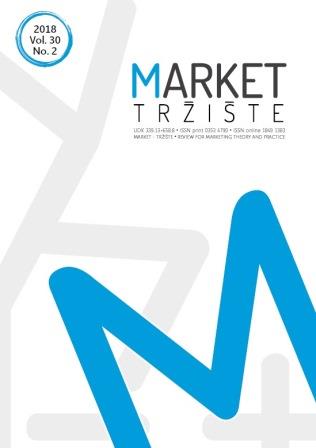Students’ Perceptions of Service Quality, Satisfaction, and Word-Of-Mouth: Scale Adaptation and Validation on a Sample of ICT and STEM Students
Students’ Perceptions of Service Quality, Satisfaction, and Word-Of-Mouth: Scale Adaptation and Validation on a Sample of ICT and STEM Students
Author(s): Dunja Meštrović, Nina ZugicSubject(s): Economy, Higher Education , Marketing / Advertising
Published by: CROMAR (Hrvatska zajednica udruga za marketing) i Ekonomski fakultet Zagreb
Keywords: higher education; perceived service quality; scale development; students’ satisfaction; word of mouth;
Summary/Abstract: Purpose – The purpose of this empirical research is to adapt and adopt a measurement tool that will accurately assess students’ perceptions of higher education (HE) service quality (SQ), as well as the students’ overall satisfaction (SS) and their word-of-mouth (WoM) behavior. The target groups are information communication technology (ICT) and science, technology, engineering, and mathematics (STEM) students. Design/Methodology/Approach – The paper introduces the process of adaptation, adoption, and psychometric validation of the proposed ICT & STEM SQ-SSWoM measurement scale, consisting of the following sections: students’ demography, perceptions of SQ, and WoM intentions survey. After the initial administration of tests, followed by the pilot testing and scale purification, quantitative data were collected from 214 ICT and STEM students. Statistical tests were applied in two stages, involving an analysis of the scale’s validity, followed by that of its reliability and dimensionality. Findings and implications – The confirmatory factor analysis yielded 24 SQ items, categorised under 5 factors, 4 SS items, and 3 items measuring students’ positive WoM intentions, which confirmed all the scale’s psychometric characteristics except its discriminant validity. Limitations – Besides the unconfirmed discriminant validity, this student-focused study used a sample of 4 public ICT and STEM HE settings in Croatia and was confined to the students’ perspective; thus, the results obtained should be interpreted within its limitations. Originality – The results of this research suggest an acceptable model fit, thus proposing the usability of the adapted measurement scale and contributing to the extant literature reporting findings on SQ, SS, and positive WoM intentions within the ICT and STEM HE context.
Journal: MARKET/TRŽIŠTE
- Issue Year: 30/2018
- Issue No: 2
- Page Range: 195-211
- Page Count: 17
- Language: English

